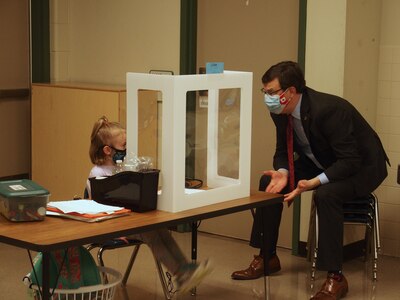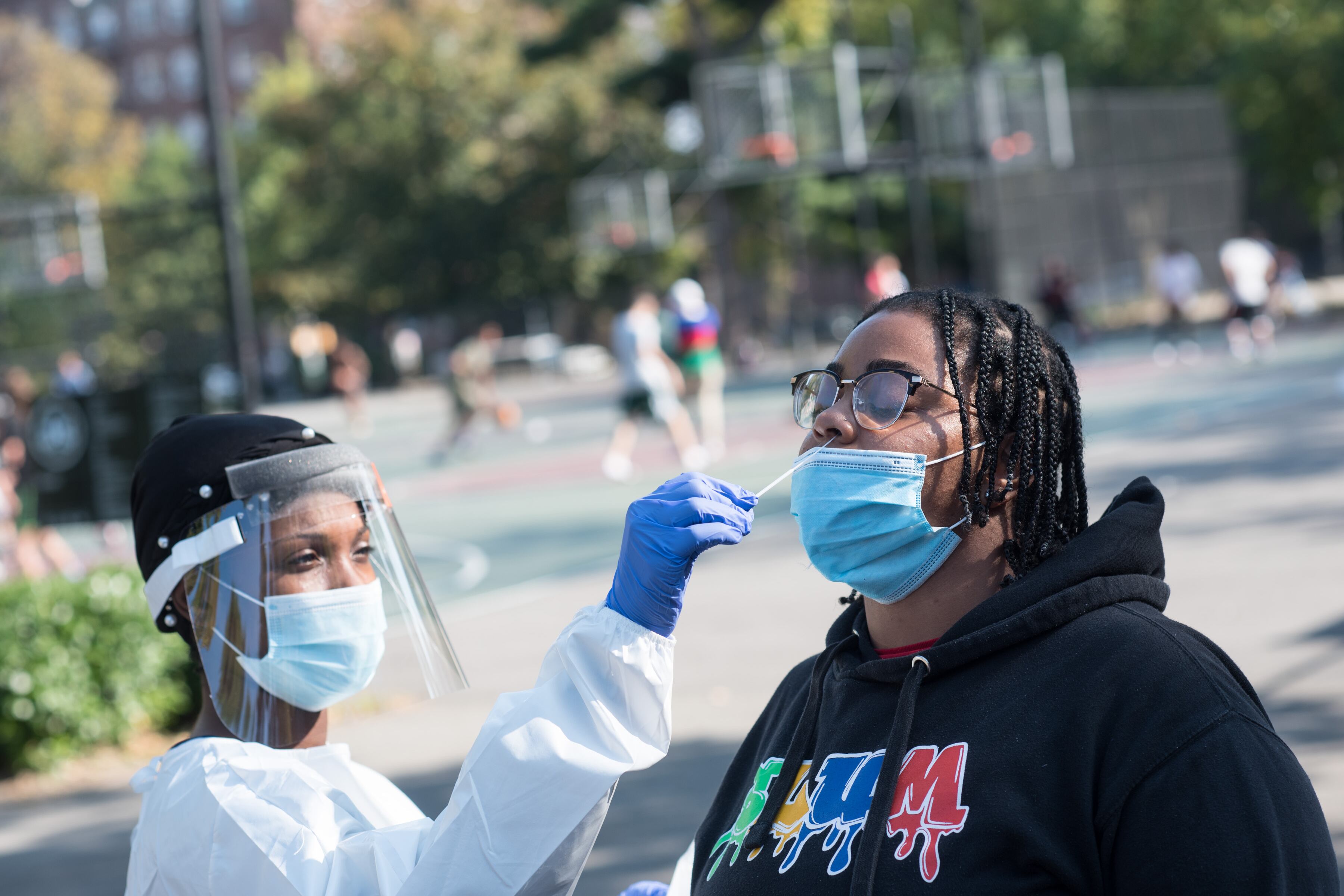Shelby County Schools is teaming up with the Memphis city government to offer COVID-19 testing in schools now that classrooms are open.
The tests for students and staff will be optional and happen about every two weeks, with a goal of starting in mid-to-late March, said John Barker, a district deputy superintendent.
“Every student, every teacher in a school who wants to have a test, can have a test,” Barker said Saturday during the school board’s daylong planning meeting.

The test, which includes inserting a long cotton swab partially up each nostril for a few seconds, has been a part of the district’s reopening plan for months but details had not been released until recently.
Coronavirus testing is important to help understand infection rates in schools, especially when the surrounding community spread is high. Students and staff who came in contact with an infected person are supposed to be notified within 12 hours of school leaders learning of a positive case.
The city’s testing method, called pooling, often can get school leaders and parents results within 24 hours, which can help reduce transmission by keeping infected staff and students at home.
Pooling allows technicians to test an entire classroom’s samples at once. If the virus is detected, the lab can go back and test each sample individually to find the source. If the group comes back negative, the technicians can move quickly to test the next group.
Although COVID-19 testing has been a sticking point for teachers in other districts, Memphis teachers mostly had been worried about getting vaccinated. Shelby County Schools and the local health department offered first-dose vaccinations for all employees last week before classrooms started to reopen Monday.
The city is currently rotating COVID-19 testing to about a dozen charter and private schools whose classrooms have been open. A city spokesman said last month that Shelby County Schools, just like the other public schools in the program, would not have to pay anything to participate in testing. But district officials said they’ve been told they would need to help pay for the city’s current contracts for laboratory testing, staffing, and supplies.
District leaders said over the weekend they estimated spending about $3 million over the next year from their second round of federal relief money on COVID-19 testing. City officials were not available this week to answer questions about funding for the program.







